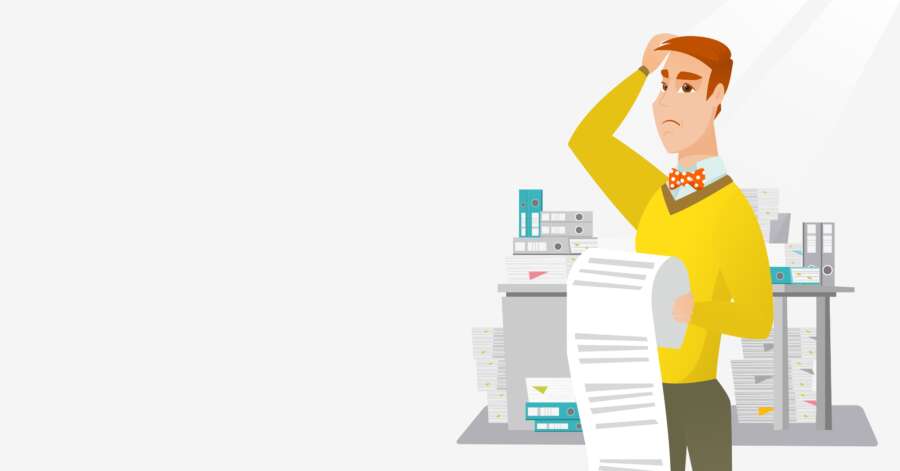
Building your credit score takes time, and nothing is more frustrating than seeing it suddenly drop for something you didn’t realize would affect it. While many people know that failing to meet debt obligations such as credit card payments can affect credit, they don’t realize that closing a credit card or applying for a mortgage can also drop your score.
A drop in your credit score can make it harder to qualify for loans and insurance. If your score has accidentally dropped, you should look for low-credit mortgage lenders and non-credit based car insurance as you try to lift your score.
In the meantime, here are some things to avoid if you don’t want your score to drop further.
Too Many Hard Inquiries
Outside of missed payments, major things that cause your credit score to drop are hard credit inquiries. Hard inquiries occur when an entity needs to see your full credit history. A soft inquiry occurs when they just need to see basic information and does not affect your credit score.
If you open too many lines of credit or apply for a mortgage or similar loan, it will cause a temporary drop in your score. You can avoid these drops by only applying for things that require soft inquiries, such as insurance, while your credit is undergoing a hard inquiry. Stagger your bigger loan applications.
If you accidentally applied for too many loans at once or opened a credit card while applying for a mortgage, your credit score may have dropped. This can negatively affect ongoing hard inquiries, such as those for a car or home loan.
You can sometimes get around this by working with a lender who looks at other factors that prove your trustworthiness, such as income.
You should also stagger your hard and soft credit inquiries. For instance, get a loan for a car, which requires a hard inquiry, around the same time you are looking for car insurance, which uses a soft inquiry. If you have to do several hard inquiries at once, be aware your score will be lower and look into lenders and insurance policies that don’t require a credit check at all.
Maxed Out or Closed Credit Card
Another thing that can make your credit score drop is if you increase your credit utilization ratio. This ratio increases if you come too close to your credit limit or maxed out your credit card.
As a general rule, you want your credit utilization to remain below 30%. That means you use less than 30% of your credit limit. This limit is calculated across all your open credit accounts, so keep an eye on it.
While maxing out a credit limit can drop your credit score, so can closing a card completely. While closing a card might seem like a good way to save and a way to keep yourself from borrowing over your limit, it actually just removes an entire credit limit from your score, shortening the age of your total credit score.
Age is a major factor in calculating credit scores. The longer your account has been active the better. Removing a credit card entirely is like erasing the time you spent using it and building up your score. As a general rule, you should only cancel a credit card if it is financially impossible for you to keep it open, such as if you cannot resist using it or it has a high annual fee.
Paid Off a Loan Too Early
Finally, paying off a loan earlier than you need to can also drop your credit score. This may surprise some people, as we tend to assume that paying off loans early shows trustworthiness and credit worthiness. As a general rule, you can pay off credit cards early just fine without it causing your score to dip.
However, paying off non-credit card debts can actually lower your score. This is because of the difference in how credit bureaus look at revolving lines of credit, such as credit cards, and installment loans, such as a mortgage.
When you pay off a credit card, the credit account stays open. However, when you pay off an installment loan in full, the account closes. While submitting payments early in general won’t negatively impact your credit, it shortens the time the loan has to affect your credit utilization ratio and boost your score.
Once the loan is paid off completely, it will be removed from your account. While this doesn’t cause your score to dip on its own like a canceled card does, it does prevent your score from rising or maintaining its high level. This means that other financial activities that were previously normal could begin affecting your credit differently.
Getting Your Credit Score Back Up
There are many ways you can get your score back up after it dips. Let your score recover from a hard inquiry, pay off your loan in installments throughout its entire length, and keep multiple loans and lines of credit open. As long as you pay them off regularly, multiple loans help build credit.
About the Author:
Deborah Goldberg researches and writes about credit and personal finance for the auto insurance comparison site, 4AutoInsuranceQuote.com. She is passionate about loan and credit transparency for entrepreneurs.
This is a Sponsored Feature


